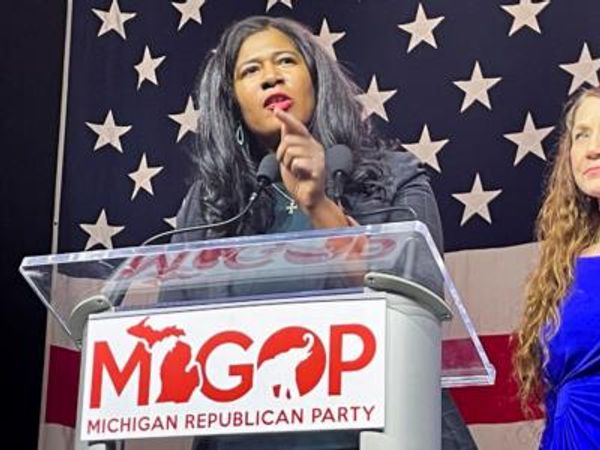
Victim was one of those rare films that actually made a difference. Its sympathetic portrayal of homosexuality in 1960s Britain helped pave the way for decriminalisation, six years later, via the 1967 Sexual Offences Act. The Act’s chief architect, Lord Arran, even wrote to Victim’s star, Dirk Bogarde, thanking him. The movie smuggled its courageous campaigning into British cinemas in the guise of an accessible London mystery thriller, in which Bogarde’s respectable, married barrister is drawn into a sprawling blackmail plot by Barrett, a young, gay construction worker, with whom he has been photographed. Peter McEnery, who played Barrett, reminisces on the experience. SR
I had no reservations at all about taking the role; it was a good part. And I was absolutely thrilled because Dirk Bogarde was a big name. I had just started out. I had moved up to London and was “living in sin” with my first girlfriend. I had done one movie which I’m admitting to before that, which was Tunes of Glory with Alec Guinness and John Mills, and I had just been auditioned for the newly formed Royal Shakespeare Company under Peter Hall.
I was very innocent and ignorant about the gay scene. I didn’t have a very liberal sensibility at the time, I must say. I was brought up just outside Birmingham, and we moved to Brighton when I was a kid, so I really didn’t have much awareness of what was going on. As far as I knew, gay people were effeminate, “limp-wristed”, one would have said, as personified by Kenneth Williams.
I did know that I was in a profession that was known for homosexuality, and there were even warnings from people: you must be careful. Careful who you associate with. You could tarnish your reputation, or be led astray, it was implied. Most of the actors in supporting roles in Victim were straight, because I think gay actors were a little too nervous of associating themselves with a film that could incriminate them later on. Of course, we didn’t know that, six years later, homosexuality would be made legal. Looking back, it’s like the dark ages. One of the characters in the film says to me: “Well, it used to be witches. At least they don’t burn you.” But it sort of belongs in that category.

Nobody suggested that I should “act gay”, whatever that might be. I don’t remember director Basil Dearden giving me any pointers, but then I didn’t need a lot of help for a character running around London into telephone boxes, which is what it really amounted to!
What was it like to work with Bogarde? We didn’t have any scenes together but we saw each other every day, because he was always on the set. He was meticulously professional in terms of the usual things like knowing his lines and being on time. They sound like cliches but they are tremendously important when you’re making a movie. He was very observant and kept an eye on things and supported everybody.
I remember doing the incriminating photograph with him. You don’t actually see the image on the photograph in the film. People look at it and go: “Oh my god,” and: “Hmmm,” and: “Why is he crying?” You only see it from behind. It was just a photograph of Dirk and I sitting in a car on the Pinewood lot, taken through the windscreen. I asked, “How’s it going to show that I’m crying?” The photographer said: “Well, maybe you could put your hand up to your cheek as though you’re wiping away a tear?” But Dirk and I weren’t crying at all; we couldn’t stop laughing. So the photograph, in fact, shows us with grins on our faces.
I was invited to his house one Sunday to lunch with a whole gang of other people not from the film. It was a very exotic lunch with the stars at this big sprawling house with a swimming pool, near the film studios. David Frost was there, I remember, and [the actors] Noel Harrison and Georgia Brown, who was doing Oliver! the musical at the time. You see the posters of it in the film – outside the New theatre [now the Noel Coward theatre].
I don’t recall Bogarde’s own sexuality being common knowledge at the time. He lived openly with his partner, Tony Forwood, who was his manager. That arrangement was something that was totally accepted, but I think there were attempts at film studios to match Bogarde up with leading actresses to give him a more heterosexual profile.

That’s why it was tremendously brave of him to put his whole pin-up career on the line with Victim. But he was in his 40s and he decided he needed something other than Doctor in the House and those kind of movies. It could have really backfired on him but Victim actually liberated him to do movies like The Servant. It was another brave move of his to play that part, which is totally unsympathetic. He admitted there was a lot of himself in that character, in terms of his selfish nature.
When I finished the movie I went straight into the deep end in Stratford with the RSC, so I really wasn’t able to concentrate on what happened to Victim. But I did get a lot of letters from the gay community at the time, largely saying: “We all thank you,” which I thought was very touching.
Bogarde tried to stop me going to the RSC. He said: “You should do more movies, not just theatre.” He confessed he had stage fright: he had had a terrible experience doing a play once, where he completely froze. He thought he would never step on stage again. So I think there was an element of “don’t go into that dangerous career”. I’m still with the RSC today, though. I’m an associate artist there. So doing Victim didn’t do my career any harm at all either!
Victim is released on 21 July, and the Gross Indecency season at the BFI Southbank, exploring the onscreen portrayal of homosexuality, continues until 30 August.







